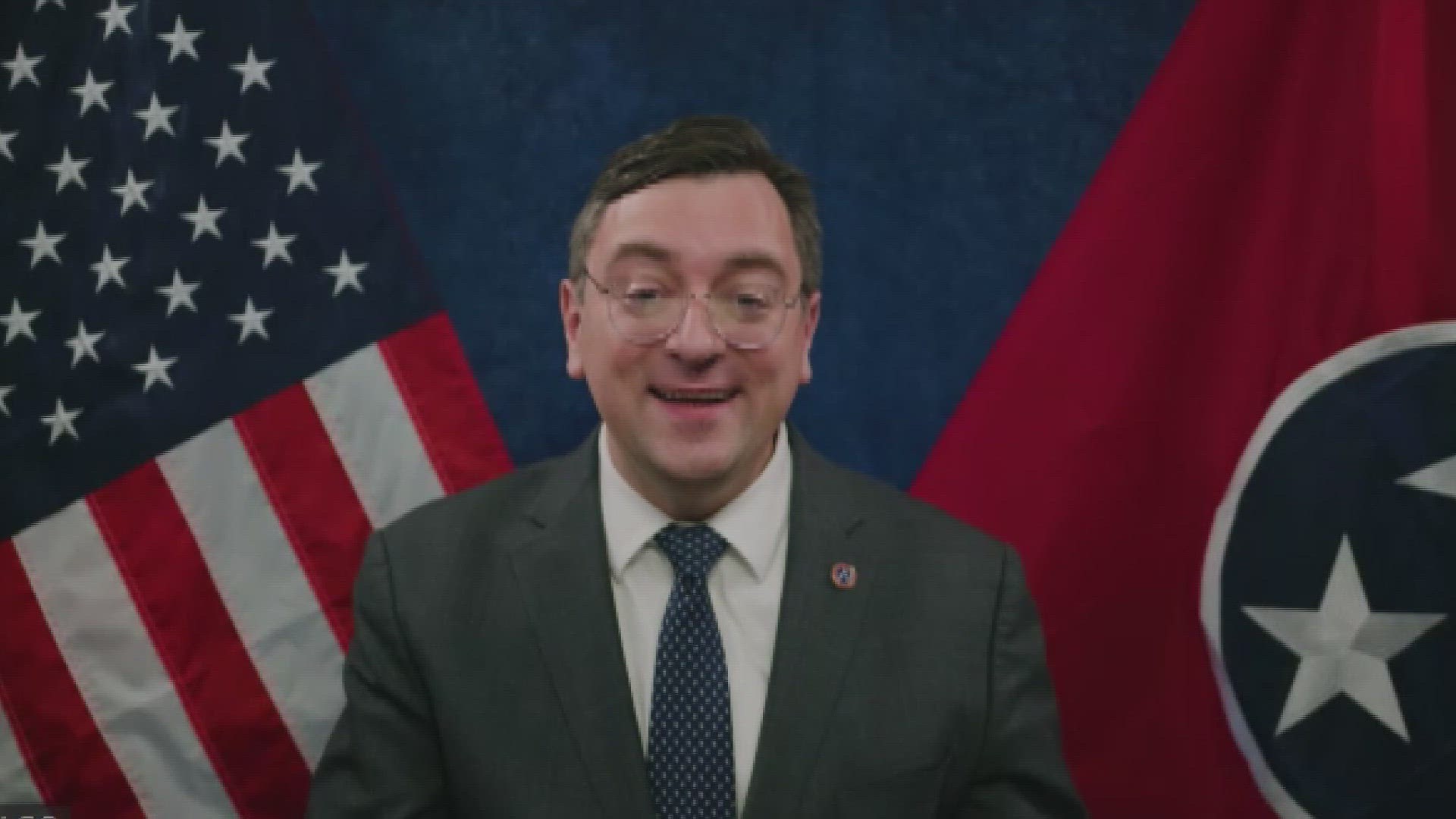KNOXVILLE, Tenn. — It's a billion-dollar organization which, for years, has ruled the world of college athletics. Its president earns millions. Now, Tennesseans are taking it on.
On Wednesday, the Tennessee Attorney General announced a collaboration between his state and the Commonwealth of Virginia to sue the NCAA.
"The NCAA has not been behaving in a manner that makes people think that they're going to be fair," Tennessee Attorney General Jonathan Skrmetti said. "I don't know what the future looks like, but it's got to be something better than this."
The attorney general's complaint, filed in the U.S. District Court for the Eastern District of Tennessee, said the NCAA's NIL recruiting ban unfairly limits competition and reduces the amount of money a college athlete could get from their name, image and likeness.
Current rules prevent athletes from negotiating NIL contracts before they commit to a university. The lawsuit said the NCAA rules prevent an athlete from earning their full value.
"Everybody else is making money off this huge industry," Skrmetti said. "The student-athletes shouldn't be left behind."
Tennessee and the Commonwealth's lawsuit comes on the heels of a blistering letter from UT Chancellor Donde Plowman to the President of the NCAA. It said the NCAA is "failing."
"Two and a half years of vague and contradictory NCAA memos, emails and 'guidance' about name, image and likeness (NIL) has created extraordinary chaos that student-athletes and institutions are struggling to navigate," Plowman wrote.
On Tuesday, the New York Times reported the NCAA is investigating UT Football for recruiting violations. The report said the investigation centers around a UT donor group's role in flying quarterback Nico Iamaleava to campus on a private jet. Plowman's letter said the NCAA was trying to create new rules and retroactively apply them.
"It's already the wild west with arbitrary enforcement," Skrmetti said. "The NCAA was moving the goalposts and it's not fair for them to make these students suffer as a result of unclear rules in a shifting environment."
Skrmetti said Tennessee's lawsuit could return the issue of student-athlete compensation to the U.S. Supreme Court. In 2021, the high court issued a unanimous ruling siding with NCAA athletes. The ruling opened the door for student-athletes to profit off of their name, image and likeness.

